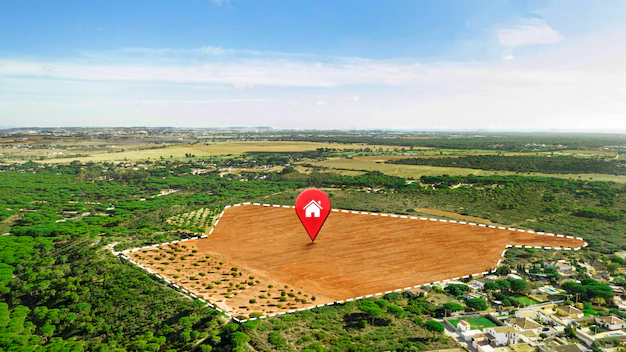Understanding the legal landscape around land leasing is crucial for entrepreneurs looking to establish or expand their businesses in Botswana. Whether you are starting a new venture, expanding your operations, or seeking to acquire property for commercial purposes, knowledge of Botswana’s land leasing laws is essential for a smooth and legally compliant business operation. This article will guide you through the land leasing process in Botswana, focusing on the legal framework, types of leases available, and key considerations for entrepreneurs.
1. Overview of Land Leasing in Botswana
In Botswana, land ownership and leasing are governed by a combination of traditional, statutory, and customary laws. The government of Botswana owns all land within the country, while citizens and companies can acquire rights to lease or use land for business purposes. The government has established various mechanisms to regulate land leasing to ensure that it benefits both the economy and the people.
2. Understanding Land Ownership in Botswana
Before delving into land leasing laws, it is important to understand Botswana’s land ownership structure:
- State Land: The majority of land in Botswana is state-owned, meaning it is owned by the government. Entrepreneurs and businesses can only lease or obtain rights to use state land for specific periods, but cannot own it outright.
- Customary Land: Some land, particularly in rural areas, is held under customary law. This land is typically administered by traditional authorities, such as chiefs or village councils. Entrepreneurs interested in leasing this land must seek permission from local authorities.
- Freehold Land: Freehold land is privately owned and transferable, although it represents a small portion of land in Botswana. Entrepreneurs looking to acquire land through purchase will often deal with freehold land.
3. Types of Land Leases in Botswana
Botswana offers various types of land leases to suit the needs of different entrepreneurs. These leases are granted for a set period, and the terms and conditions are established based on the lease agreement.
3.1 Commercial Leases
Commercial leases are intended for businesses looking to lease land for commercial purposes such as retail, manufacturing, or hospitality. Commercial leases can be issued for both urban and rural land, and their terms are typically between 5 to 99 years.
- Lease Duration: A commercial lease typically lasts for a period of up to 99 years, but shorter leases (e.g., 5 to 20 years) are common, especially for small or medium-sized businesses.
- Lease Payment: Leases are usually accompanied by annual rental payments, which may be subject to government revisions based on the area and market conditions.
- Development Rights: Entrepreneurs leasing commercial land are often granted permission to develop the land for the intended business purposes. This may include constructing buildings, infrastructure, and other developments.
3.2 Industrial Leases
Industrial leases are granted for businesses involved in manufacturing, warehousing, and other industrial activities. These leases are typically longer-term and may include provisions for significant capital investment in land development.
- Land Usage: Industrial leases usually specify how the land can be used, including zoning restrictions to ensure that the land is utilized for industrial purposes.
- Lease Terms: Industrial leases can range from 10 to 50 years, depending on the specific needs of the business.
- Environmental Compliance: Industrial land leaseholders must comply with Botswana’s environmental regulations to ensure that the land is used sustainably.
3.3 Agricultural Leases
Agricultural land leasing is common in Botswana, given the country’s emphasis on agribusiness. Agricultural leases allow entrepreneurs to lease land for farming purposes, such as crop cultivation or livestock farming.
- Lease Conditions: Agricultural leases may impose restrictions on land use, including the type of crops that can be grown or the type of livestock that can be raised.
- Duration: Agricultural leases generally range from 10 to 50 years, depending on the intended use and investment in the land.
- Government Support: The government may offer incentives or subsidies to agricultural leaseholders, particularly those involved in large-scale farming or food production.
4. The Process of Acquiring a Land Lease in Botswana
Obtaining a land lease in Botswana involves a step-by-step process that can vary depending on the type of land, the purpose of the lease, and the location. However, the general process typically follows these steps:
4.1 Identifying Available Land
The first step in acquiring a land lease is to identify available land. Entrepreneurs can approach various government agencies, including the Department of Lands and Surveys, Botswana Development Corporation (BDC), or Botswana Investment and Trade Centre (BITC), to inquire about land availability for lease.
- Urban Areas: In urban areas, land is often leased by the local government or municipalities.
- Rural Areas: In rural areas, land leasing may involve negotiations with traditional authorities, including chiefs or village councils.
4.2 Applying for a Land Lease
Once suitable land is identified, entrepreneurs must submit an application for a land lease. The application process typically involves the following steps:
- Submission of Business Plan: Entrepreneurs may be required to submit a comprehensive business plan that outlines how the land will be used, the type of business, and the expected economic impact.
- Documentation: Applicants must provide documents such as proof of identity (e.g., Botswana national ID), business registration, financial statements, and tax compliance certificates.
- Environmental Impact Assessment: For certain types of businesses, such as industrial operations, an environmental impact assessment (EIA) may be required.
4.3 Review and Approval
After the application is submitted, the relevant authorities will review the proposal. This may involve consultations with local authorities, environmental assessments, and market analysis to determine the viability of the business on the leased land.
- Terms of Lease: The terms and conditions of the lease will be negotiated, including the duration, rent payments, renewal clauses, and any restrictions on land use.
- Approval: If the application is approved, the entrepreneur will sign a lease agreement, and the land will be allocated for use according to the agreed terms.
4.4 Signing the Lease Agreement
Once approval is granted, the entrepreneur must sign the lease agreement, which outlines the following:
- Duration of the Lease: The lease agreement will specify the length of the lease, including any renewal options.
- Rent and Payment Terms: The agreement will specify the rental amounts, payment schedule, and any escalation clauses (e.g., annual increases in rent).
- Land Use Restrictions: The lease may include specific clauses on how the land can be used, the types of buildings that can be constructed, and any required zoning approvals.
5. Key Considerations for Entrepreneurs Leasing Land in Botswana
When navigating land leasing laws in Botswana, entrepreneurs must take the following key considerations into account:
5.1 Lease Term and Renewal Options
It’s crucial to understand the length of the lease and the renewal options available. Leases in Botswana are often long-term, with options for renewal upon expiry, especially if the business is successful. Entrepreneurs should negotiate favorable renewal clauses to ensure continued access to the land.
5.2 Land Use Restrictions
Be aware of any restrictions or conditions placed on the land in terms of usage, zoning, and environmental impact. Compliance with these restrictions is essential to avoid legal complications during the lease term.
5.3 Government and Traditional Authority Involvement
In rural areas, particularly those involving customary land, traditional authorities play a significant role in the leasing process. Entrepreneurs should maintain good relationships with local authorities and ensure that all necessary permissions are obtained.
5.4 Environmental Regulations
Certain types of land use, such as industrial or agricultural activities, may require compliance with environmental laws. Entrepreneurs should factor in the costs of environmental assessments and mitigation measures to ensure compliance
Navigating Botswana’s land leasing laws can be a complex process, but understanding the legal framework and requirements can significantly smoothen the journey for entrepreneurs. Whether you are starting a commercial, industrial, or agricultural business, the government and local authorities offer various leasing options to support your venture. By understanding the lease types, application process, and key considerations, entrepreneurs can effectively secure land for business operations and ensure long-term success in Botswana’s growing economy.






